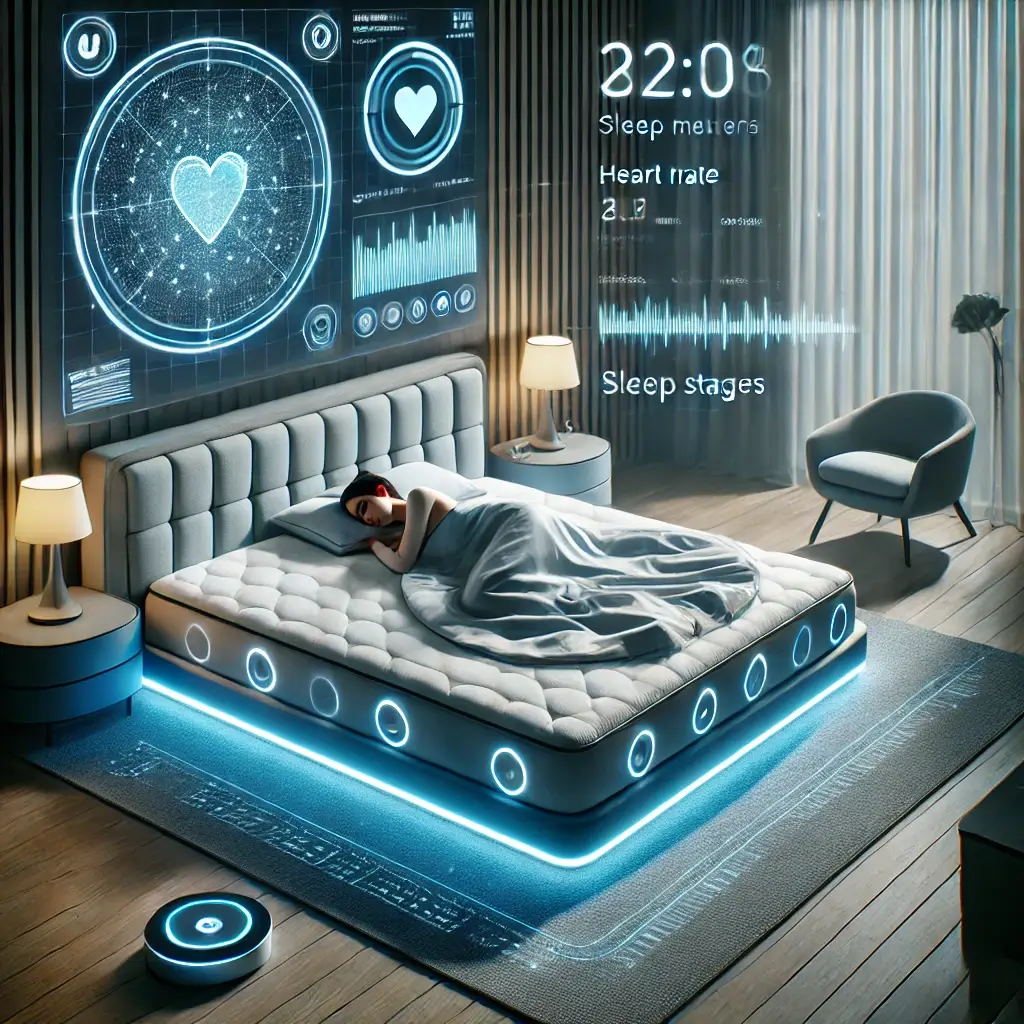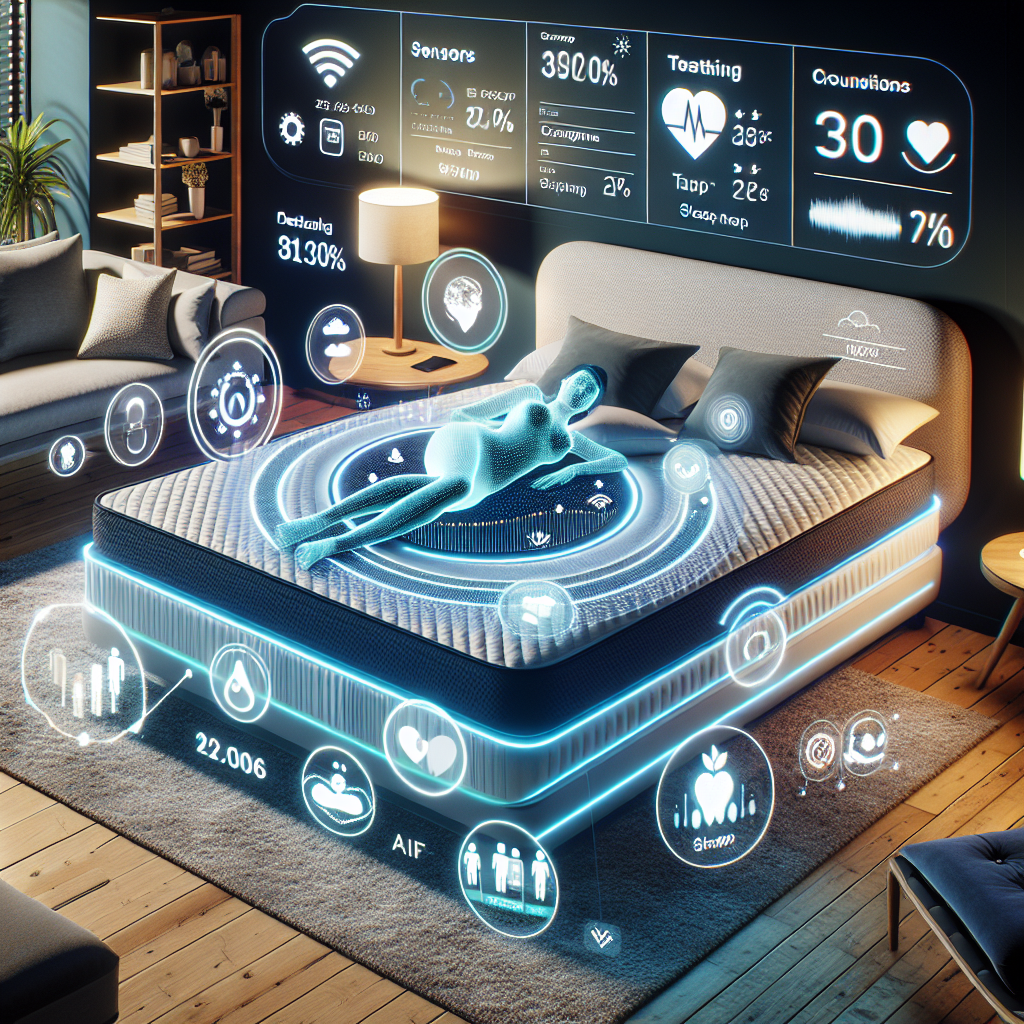The Importance of Sleep and Modern Technology
Sleep is the cornerstone of overall health and well-being, impacting everything from cognitive function to immune system efficiency. Despite its importance, achieving restorative sleep remains a challenge for many. Chronic sleep deprivation is a public health issue linked to a host of conditions, including cardiovascular disease, diabetes, and mental health disorders. In the quest for better sleep, technology has emerged as a powerful ally. Smart mattresses revolutionize sleep science, offering an integrated solution that blends comfort with cutting-edge features.
Smart Mattress Technology Overview
Unlike traditional mattresses, which passively support the body, smart mattresses actively work to enhance sleep quality. Equipped with advanced sensors and algorithms, these mattresses monitor sleep patterns, adjust to individual needs, and even contribute to health tracking. Features such as biometric monitoring with automatic firmness adjustments and integration with smart home systems make them a compelling choice for those seeking to optimize their nightly rest. As these innovations become more accessible, the question arises: Are smart mattresses the future of sleep health, or are they simply a high-tech luxury? By examining the scientific evidence and exploring recent technological advances, we can better understand their potential to revolutionize the way we sleep.
Research Findings and Latest Developments
The potential benefits of smart mattresses are supported by preliminary studies in sleep science. One notable investigation, published in the Journal of Sleep Research in 2019, explored the use of a pressure-mapping smart mattress for chronic low back pain. Participants reported significant improvements in sleep quality and a reduction in pain levels, suggesting that such technology can positively impact specific health conditions. Another study, conducted in 2018 and published in Sleep Health, focused on healthy adults using biofeedback-enabled smart mattresses. This research highlighted enhancements in sleep efficiency and a reduction in sleep disturbances, reinforcing the role of smart mattresses in promoting better sleep outcomes. These findings, while promising, underline the need for larger, more diverse trials to establish the long-term efficacy of smart mattress technology.
Recent Technological Advancements
The landscape of smart mattress innovation has expanded dramatically in recent years. In 2023, leading manufacturers began integrating artificial intelligence for real-time sleep adjustments. These AI-powered mattresses can analyze sleep data, such as heart rate variability and respiration, to create a dynamic sleep environment tailored to the user. Temperature regulation has also become a critical focus, with systems that adapt to circadian rhythms, cooling or warming the mattress based on sleep stages. Such features not only improve comfort but also support the body’s natural processes, potentially aiding in hormonal regulation and metabolic efficiency. Moreover, smart mattresses are increasingly being paired with wearable devices to provide a comprehensive health profile. For example, a 2024 innovation involves the use of radar-based contactless sensors for monitoring physiological changes. These advancements align with broader trends in telehealth, where smart mattresses are envisioned as tools for remote patient monitoring. By detecting irregular sleep patterns or early signs of conditions like sleep apnea, these mattresses could play a role in preventive healthcare.
Limitations and Future Considerations
Despite their potential, smart mattresses come with certain limitations and concerns. Cost is a significant barrier, as these advanced sleep systems are often priced beyond the reach of the average consumer. Privacy is another critical issue, with users expressing unease about the collection and storage of sensitive sleep and health data. Companies must address these concerns through transparent data policies and robust cybersecurity measures. Furthermore, while initial studies are encouraging, the scientific community stresses the importance of long-term research. Questions about the durability, accuracy, and clinical relevance of smart mattresses remain unanswered. Additionally, individual variability in sleep needs means that these mattresses may not provide universal solutions.
Future Outlook and Impact
Smart mattress technology represents a transformative step toward personalized sleep solutions. By combining traditional comfort with innovative features like biometric monitoring, temperature regulation, and smart home integration, these mattresses hold the potential to redefine how we think about sleep. Preliminary research underscores their capacity to improve sleep quality and support overall health, but more extensive studies are needed to validate these claims fully. As technology continues to advance and consumer adoption grows, the barriers of cost and privacy concerns may diminish. In the near future, smart mattresses could become standard fixtures in homes, serving as both a tool for better sleep and a gateway to improved health. For now, they offer an exciting glimpse into the possibilities of sleep science and a reminder of the importance of investing in quality rest.

Dominic E. is a passionate filmmaker navigating the exciting intersection of art and science. By day, he delves into the complexities of the human body as a full-time medical writer, meticulously translating intricate medical concepts into accessible and engaging narratives. By night, he explores the boundless realm of cinematic storytelling, crafting narratives that evoke emotion and challenge perspectives.
Film Student and Full-time Medical Writer for ContentVendor.com



